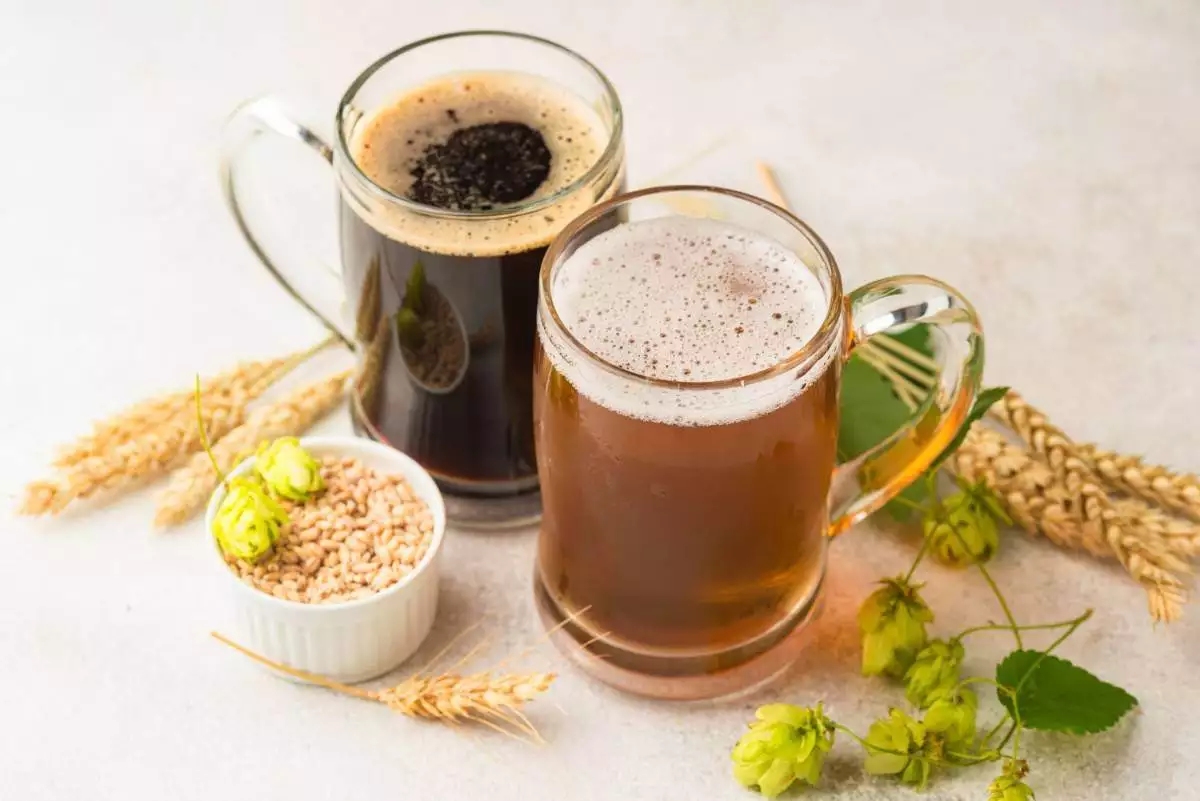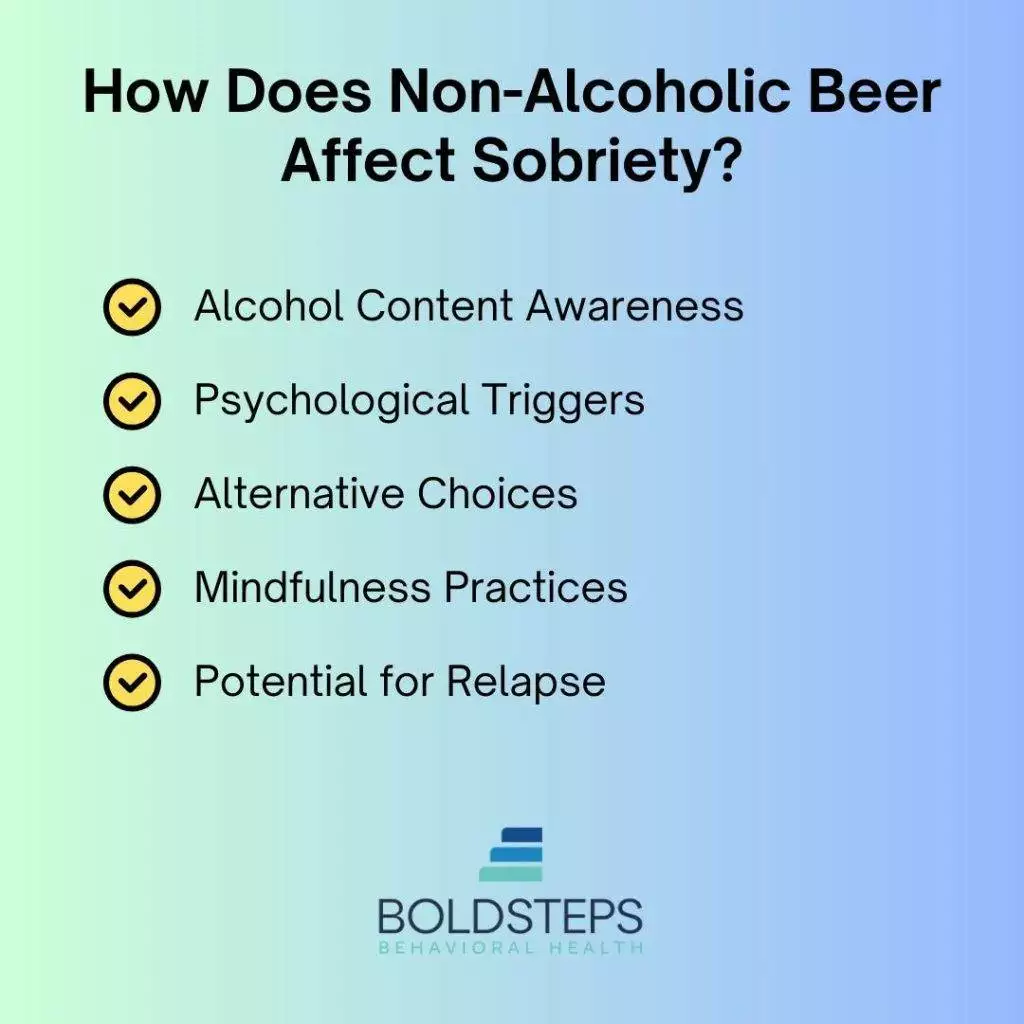Not only youngsters but numerous people who are in the phase of alcohol recovery, consider non-alcoholic beer as a substitute to fulfill their cravings. However, the question- is it safe or is it can affect sobriety? Often arises in your mind. Yes? Don’t worry!
Here in this blog, we came up with answers. But before that, we should understand sobriety and non-alcoholic beer in detail, including some important considerations.
So, let’s get going!
Non-Alcoholic Beer & Sobriety- An Overview!
In recent times, non-alcoholic beer has become more and more well-liked as a respectable substitute for those who prefer the flavor and social interaction of beer without the hangover that comes with drinking alcohol. It offers a choice to individuals in recovery or who abstain from alcohol due to a variety of factors, including personal choices, health issues, or religious convictions.
Non-alcoholic beer is produced to taste like standard beer but contains little to no alcohol, often 0.5% ABV or less. While this amount is deemed small, it’s crucial to understand that non-alcoholic beer contains alcohol. In comparison, a regular beer typically contains a 4-6% ABV.
In the context of recovering from alcohol addiction, sobriety is defined as completely giving up alcoholic beverages. The intention is to live a sober life and stay away from the bad effects of alcohol misuse. Sobriety is frequently embraced by people in recovery as a way to take back control of their lives and enhance their mental and physical health.
People in recovery who choose sobriety give themselves access to a world of opportunities where they can rekindle their passions, mend broken relationships, and advance personally.
Understanding the Risks of Non-Alcoholic Beer
1. Triggers and Cravings:
- Sensory Triggers: For many in recovery, the taste, smell, and even the ritual of drinking beer can trigger cravings for alcoholic beverages. The brain may associate the experience of drinking NA beer with past drinking behaviors, which can activate a desire for alcohol.
- Emotional Triggers: The social context in which non-alcoholic beer is consumed can also be a trigger. If past drinking experiences were tied to certain social settings or emotional states, returning to similar environments with NA beer may evoke those feelings.
2. Psychological Impact:
- Reinforcement of Drinking Habits: Engaging in behaviors that mimic past drinking routines can blur the lines of sobriety. For individuals in recovery, this can be a slippery slope that leads back to regular alcohol consumption.
- Normalization of Drinking: Drinking non-alcoholic beer can contribute to a normalization of drinking culture, which may conflict with recovery goals. The act of drinking, even if it’s non-alcoholic, can send mixed signals about one’s relationship with alcohol.
3. Social Considerations:
- Feeling Included: Some individuals may choose to drink NA beer to feel included in social situations where others are consuming alcohol. While this can enhance social interactions, it’s essential to assess whether the benefits outweigh the risks.
- Peer Pressure: In social settings, individuals may feel pressured to drink NA beer, which can lead to discomfort and internal conflict about their sobriety journey.
4. Personal Responses:
- Individual Differences: Each person’s experience in recovery is unique. What works for one individual may not work for another. Some may find non-alcoholic beer a helpful tool, while others may find it detrimental to their recovery.
- Self-Assessment: It’s essential for individuals to conduct honest self-assessments regarding their motivations for consuming non-alcoholic beer. Are they seeking a familiar taste, or is it a way to cope with social anxiety?
How Does Non-Alcoholic Beer Affect Sobriety?
Now, let’s understand how non-alcoholic beer affects sobriety:
Physiological Connection
One of the primary concerns about non-alcoholic beer is its psychological impact. For many people in recovery, the taste, smell, and experience of drinking beer can elicit a desire for alcohol. Even though non-alcoholic beer contains very little alcohol, the process of drinking it can remind people of their previous drinking habits, perhaps leading to relapse.
Alcohol Content and Tolerance
Although the alcohol content in non-alcoholic beer is low, repeated intake may lead a person to develop tolerance. Over time, this tolerance may encourage some people to seek out drinks with a larger alcohol level. For those in early recovery, it is especially crucial to avoid anything that could gradually reintroduce alcohol into their system.
Triggers and Cravings
Non-alcoholic beer may serve as a psychological trigger for someone who identifies the flavor or aroma with alcohol intake. This could trigger cravings and lead to a relapse. Others may be tempted to resume their usual drinking habits just by being in places where non-alcoholic beer is available.
Benefits of Non-Alcoholic Beer in Recovery
While there are valid concerns regarding non-alcoholic beer, some individuals may find it beneficial:
- Social Inclusion: Non-alcoholic beer can allow individuals to partake in social events without feeling left out. This can foster a sense of belonging and help maintain social connections.
- Satisfaction without Intoxication: For those who miss the taste of beer, non-alcoholic options can provide a similar sensory experience without the intoxicating effects.
Important Considerations
Personal Recovery Journey
Every rehabilitation journey is unique. If non-alcoholic beer causes cravings or a desire to drink, avoid it completely. Prioritizing sobriety entails being aware of personal boundaries and recognizing when anything may endanger long-term success.
Mindful Consumption
Moderation and attention are important for non-alcoholic beer drinkers. Being conscious of how it makes you feel, both physically and emotionally, might help you decide whether it is a long-term element of your rehabilitation.
What to Discuss with Your Healthcare Provider
Before incorporating non-alcoholic beer into your routine, consider discussing it with your healthcare provider or therapist. They can provide personalized guidance based on your recovery journey and help you assess any potential risks. Key discussion points may include:
- History of Triggers: Discuss any past experiences that have triggered cravings and whether NA beer might evoke similar feelings.
- Personal Goals: Clarify your sobriety goals and how non-alcoholic beer fits into your overall recovery strategy.
- Alternative Solutions: Explore other beverage options that provide social engagement without the risks associated with NA beer.
Need help to maintain Sobriety? Call Bold Steps!
At Bold Steps, an Alcohol Detox Center, we prioritize each individual’s well-being and tailored needs. Understanding the complexity and nuances of sobriety is essential to our approach. For anyone struggling with the decision to drink non-alcoholic beer or any other facet of their recovery path, our devoted team is here to guide, assist, and empower. Contact us today and let’s go on a journey of enlightenment and healing together.
Conclusion
The question of whether drinking non-alcoholic beer affects sobriety is complex and highly individual. While some may find it a useful alternative, others may experience cravings or triggers that could lead to relapse. Ultimately, understanding your personal recovery journey and seeking professional guidance can help you make informed decisions. Take the first step toward recovery and contact us at (717) 896-1880 today.
FAQs: Does Drinking Non-Alcoholic Beer Affect Sobriety?
Can drinking non-alcoholic beer trigger cravings for alcohol?
Yes, for some individuals in recovery, the taste, smell, and ritual of drinking non-alcoholic beer can trigger cravings for regular alcoholic beverages. It may evoke memories and feelings associated with past drinking experiences.
Is it safe for someone in recovery to drink non-alcoholic beer?
The safety of consuming non-alcoholic beer varies from person to person. While some individuals may find it a suitable alternative, others may experience triggers or cravings that could jeopardize their sobriety. It’s important to assess your individual situation and consult a healthcare professional.
What should I consider before drinking non-alcoholic beer in recovery?
Consider your personal triggers, emotional responses, and motivations for drinking non-alcoholic beer. Discussing your thoughts with a healthcare provider can help you evaluate whether it aligns with your recovery goals.
Are there any benefits to drinking non-alcoholic beer during recovery?
Some individuals may find non-alcoholic beer helpful for social inclusion, allowing them to participate in social events without feeling left out. It can also provide a similar taste experience without the intoxicating effects of alcohol.
How can I cope in social situations where others are drinking?
If you’re uncomfortable with drinking non-alcoholic beer, consider bringing your favorite non-alcoholic beverage, such as sparkling water or mocktails. Communicate your preferences to friends and family to create a supportive environment.
What types of support are available for alcohol addiction?
At Bold Steps Behavioral Health, we offer a range of addiction treatment options, including alcohol addiction treatment programs, intensive outpatient programs, and dual diagnosis treatment to address both addiction and co-occurring mental health issues.


